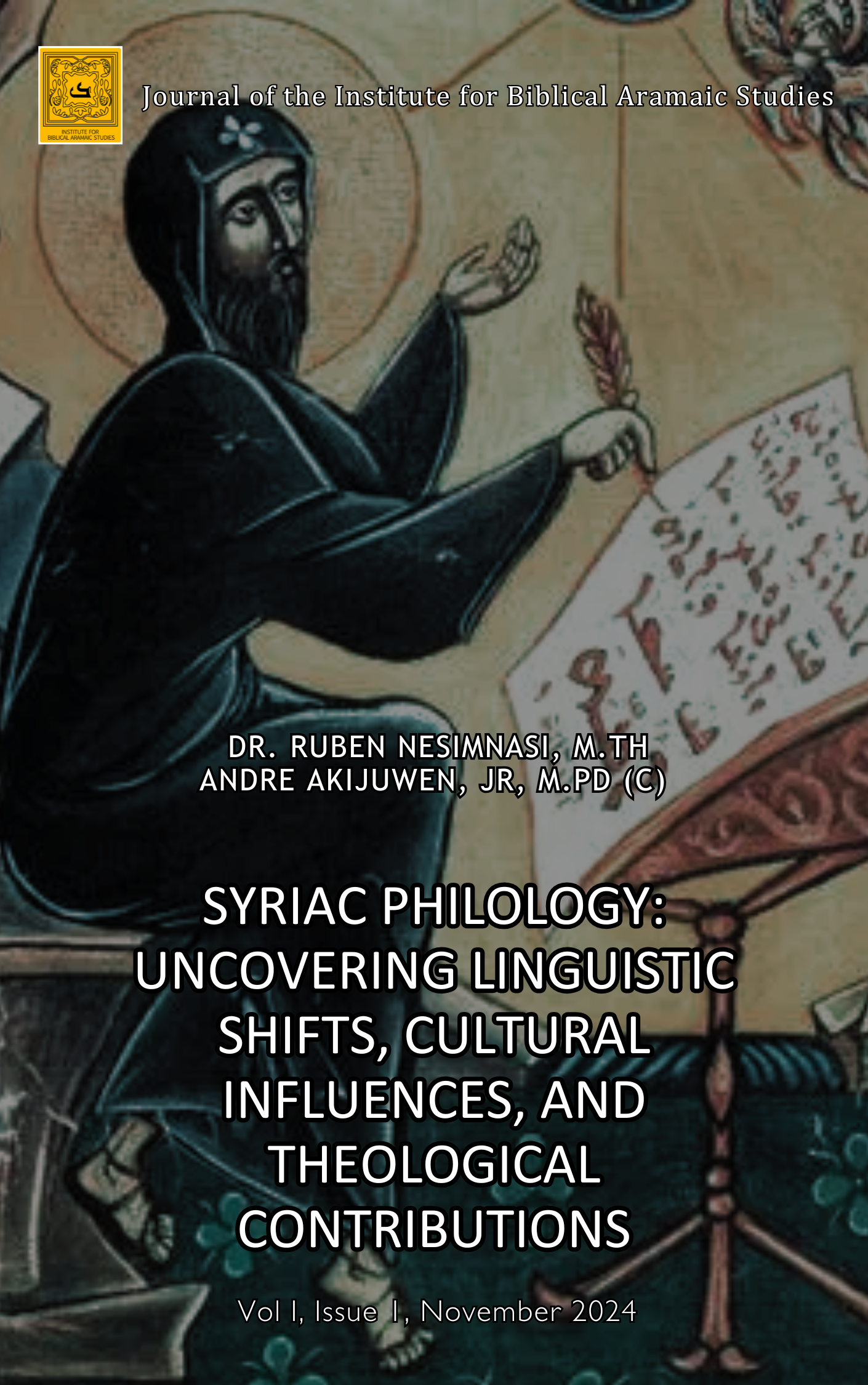Vol. 1 No. 1 (2024): Syriac philology: Uncovering linguistic shifts, cultural influences, and theological contributions

This study explores the linguistic evolution, cultural influence, and theological significance of Syriac, a dialect of Aramaic that played a crucial role in shaping early Christian thought and intercultural exchanges in the Middle East. Syriac underwent significant syntactic changes influenced by Greek and Arabic, enriching its linguistic structure and usage in both theological and cultural contexts. Through philological examination of Syriac manuscripts, the study identifies syntactic variations and linguistic insights that highlight Syriac’s adaptation and interaction with surrounding languages. The findings reveal that these syntactic transformations not only contributed to the development of Syriac but also facilitated the dissemination of Christian theological concepts, showcasing the blend of local and religious dynamics in early Christianity. Moreover, the study underscores the importance of digitizing Syriac manuscripts to preserve and enhance access for future research. Ultimately, this work makes a valuable contribution to Syriac philology, broadens the field of Semitic linguistics and theological studies, and provides modern perspectives that support the preservation and academic advancement of Semitic languages.






